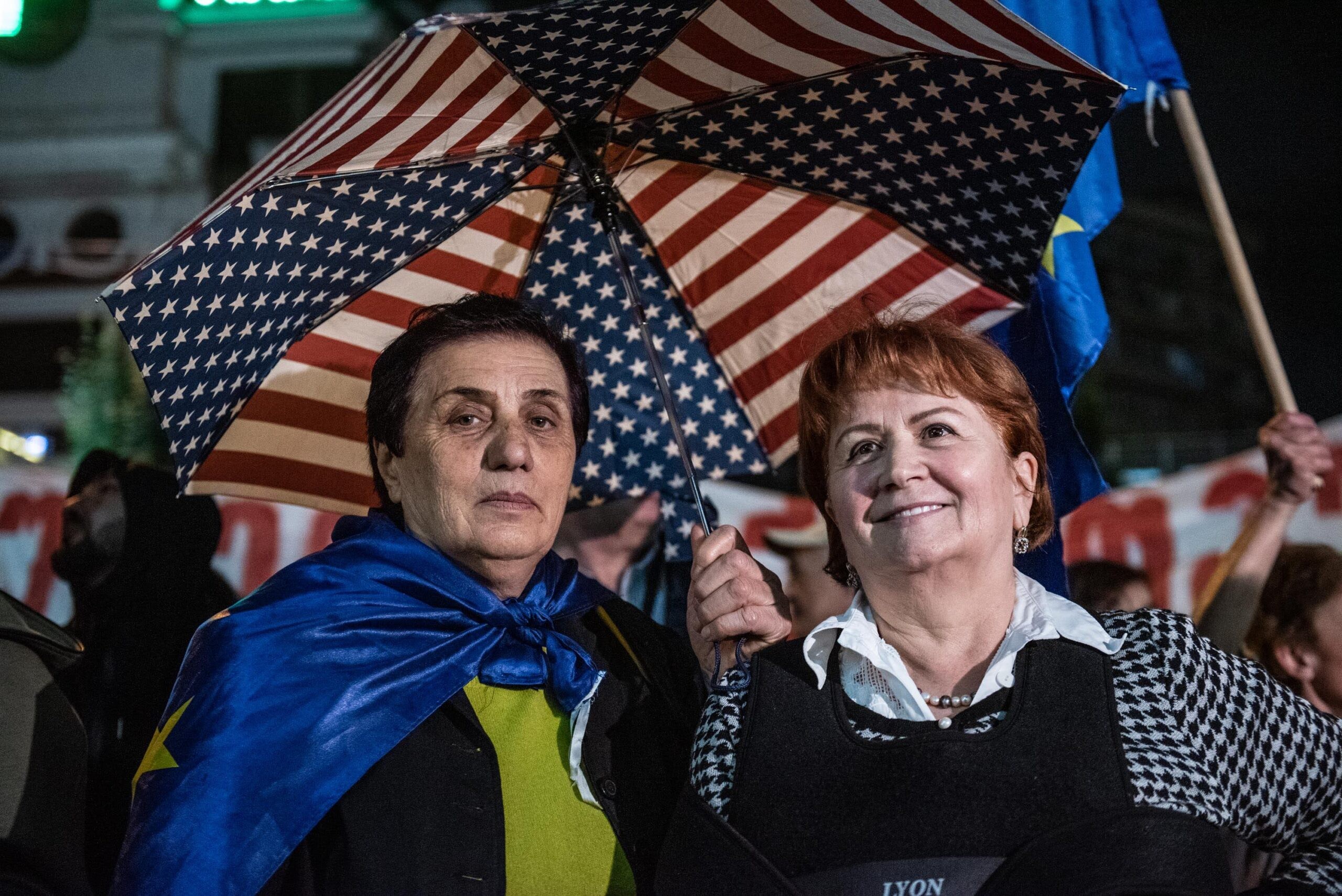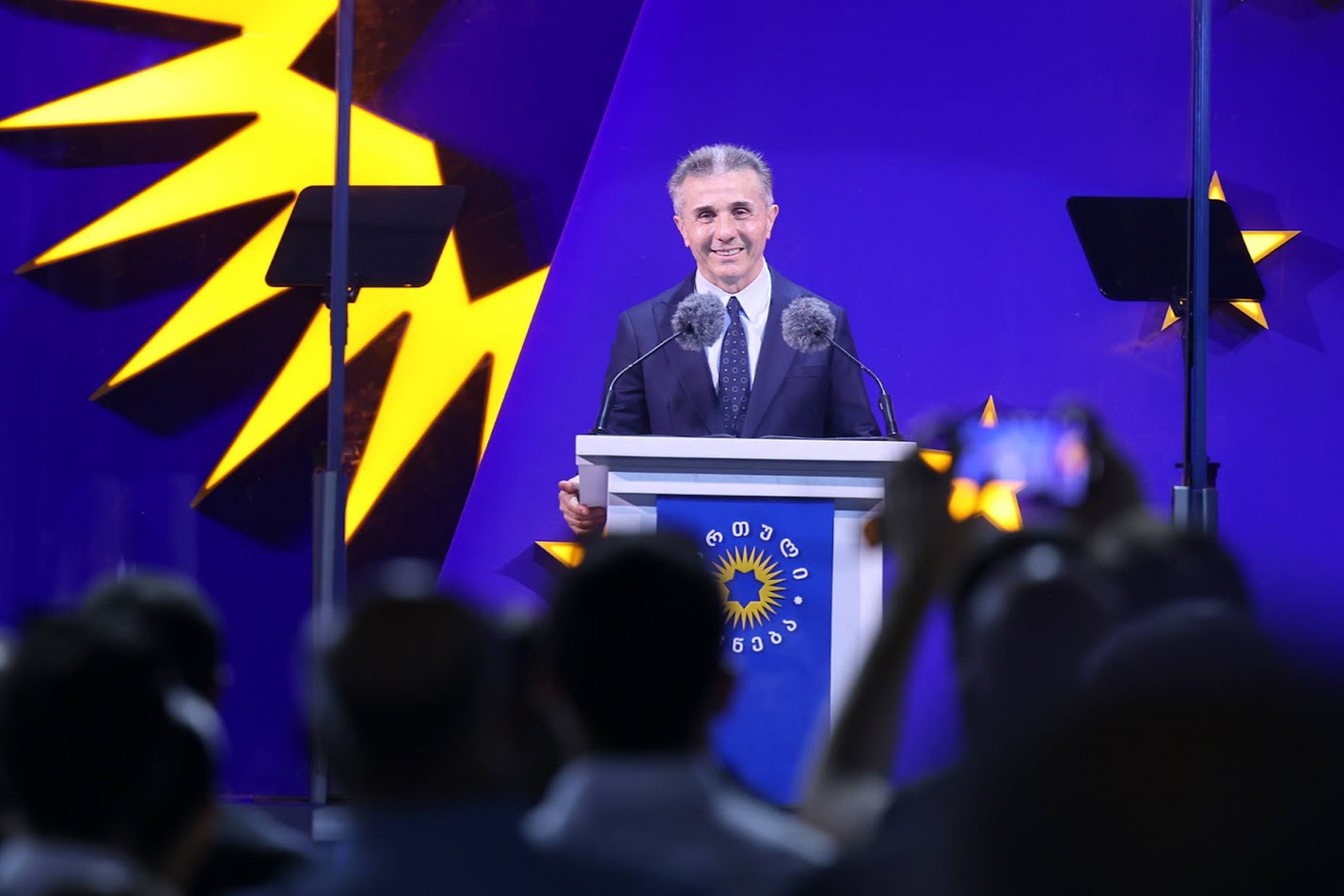US dismisses Russian claims of planned ‘colour revolution’ in Georgia

The United States has denied allegations by the Russian authorities that the US is planning a ‘Tbilisi Maidan’ in Georgia, a claim that has been met with a muted response in Tbilisi.
On 28 August, a US State Department spokesperson reportedly described the allegation that the US was preparing ‘colour revolutions’ in Georgia as ‘categorically false’.
‘The Kremlin orchestrated the 2008 invasion and today occupies 20% of sovereign Georgian territory, while continuing its brutal war of aggression against Ukraine. We stand with Georgia against Russia’s aggression’, journalist Alex Raufoglu quoted a spokesperson as saying.
Russia’s Foreign Intelligence Service (SVR) on Monday claimed that Washington was planning a ‘colour revolution’ or ‘Maidan’ in Georgia to prevent Georgian Dream from winning reelection in the October parliamentary elections.
In their statement, the SVR described Georgia’s opposition as ‘fragmented’ and unable to form stable coalitions, while portraying the ruling party as capable of securing a ‘convincing vote of confidence from the population’. They claimed this situation had angered Washington, which, they contended, controlled the opposition and was displeased with Georgian Dream’s potential for ‘continuing their sovereign course and refusing to comply with the demands of the West that contradict Georgia’s national interests’.
They further claimed that Washington was planning to use its ‘proven tools’ in the lead-up to the October parliamentary elections in Georgia to weaken the ruling party by imposing personal sanctions against its ‘top leaders’, their family members, and party sponsors.
The SVR claimed that the US government was backing Georgia-based ‘pro-Western NGOs’ and their mobilised election observers to allege election fraud through the misuse of administrative resources by the government ‘even if such instances were absent’. They also alleged that the US was funding ‘opposition youth groups’ to serve as the ‘engine’ for mobilising street protests leading to a ‘Tbilisi Maidan’.
The Russian intelligence agency further claimed that there would be protests should Georgian Dream win the elections, and that Georgian law enforcement agencies would subsequently be ‘provoked into forcefully suppressing the protests’, which would then be met with harsh American ‘political and economic’ responses.
Commenting on the statement a day later, SVR head Sergey Naryshkin, a long-time confidant of Putin who shares his KGB background, asserted that by publicising these ‘findings’, their intention was to prevent such developments in Georgia.
Georgian Dream’s undivided focus away from Russia
Georgian Dream’s reactions to the Russian allegations, in contrast to that of the US, appeared to support the SVR’s conclusions.
On Tuesday, Kakha Kaladze, Secretary General of Georgian Dream and Mayor of Tbilisi, claimed that foreign powers — though he did not specify which — were indeed backing Georgian opposition groups that had been ‘preaching [a need for a] revolution’ in the country. He contended that acknowledging this ‘did not require’ a statement from the Russian intelligence services, as he said it was already obvious.
When asked whether he believed the SVR statement constituted Russian interference in Georgian domestic affairs, Kaladze replied that ‘neither Russia nor America nor the West’ would be able to do that. He then quickly shifted to criticising the Danish Embassy, accusing it of financing an opposition group’s campaign events.
[Read more: Georgia’s Anti-Corruption Bureau requests financial reports from Democracy Festival organisers]
Georgian Dream has previously accused USAID, America’s state aid agency, of ‘inspiring riots’ in the country and training groups that planned riots and intended to provoke violence. They have also consistently described their political rivals, whom they usually refer to as the ‘collective National Movement’, as being ‘espionage forces’ controlled by foreign entities, strongly suggesting that these entities are Western powers.
Georgian Dream only recently clarified who they considered to be part of the ‘collective National Movement’, listing all major pro-Western political parties and groups, and threatening to ban them after the elections.
Despite their dramatic anti-Western turn in recent years, the ruling party has claimed that they are continuing to pursue EU and NATO membership, which enjoy overwhelming public support. They have supported this by claiming they were attempting to protect Georgia’s sovereignty from what they term the ‘global war party’, a conspiracy theory that an international cabal controls the European and American political elite.
In late July, the Georgian State Security Service (SSG) launched an investigation into a plot to assassinate Bidzina Ivanishvili, the billionaire founder of Georgian Dream and former Prime Minister, alongside an alleged coup attempt. Unfinished investigations into coup attempts, none of which hinted at non-western actors, have been a recurring theme during Georgian Dream rule since 2014.
In their announcement last September regarding the launch of an investigation, the SSG similarly claimed there was a plan to ‘implement in Georgia a scenario similar to Euromaidan in Ukraine in 2014’.
In his April speech, which was widely perceived by his critics as being defiant toward Western powers even if he didn’t name them, Ivanishvili warned that ‘today’s Georgia is neither Georgia of [Georgian President Eduard] Shevardnadze’s era nor Ukraine of Yanukovych’s time.’

‘It is impossible to change the government in today’s Georgia through the unpopular Nationals [the formerly ruling United National Movement] and NGOs,’ Ivanishvili asserted.
Members of the ruling party have also echoed Russian rhetoric in their criticism of the 2003 Rose Revolution, calling it a power change orchestrated by foreign forces, again failing to specify who.
In March last year, Prime Minister Irakli Kobakhidze, who then served as chair of the party, called it a ‘revolution of spies’ and insisted the incumbent government would not allow the same to happen again.









